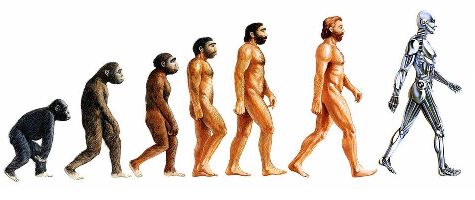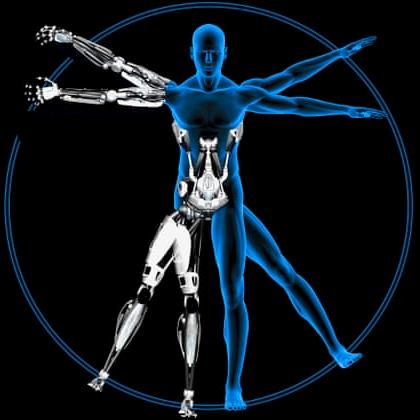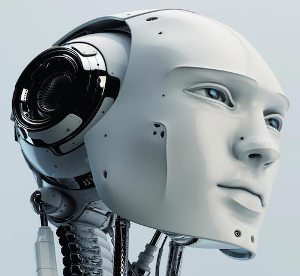 February 2022
February 2022
Transhumanism has been controversial for some time. It has been the subject of some heated discussion on the Internet. But what exactly is transhumanism?
The term was first coined by the English biologist and philosopher Julian Huxley in 1957. The first formal meeting of self-described transhumanists was in the eighties at the University of California. That became the epicenter of the transhuman movement. Then they formed the World Association of Transhumanism.
The movement is funded with billion-dollar investments from leading Silicon Valley companies. Chief among them is Google which founded the Singularity University in 2008. Transhumanists have formed political parties in many countries including the United States. Some churches have also adopted the transhumanist ideology.
According to Wikipedia, “Transhumanism is a philosophical and intellectual movement which advocates the enhancement of the human condition by developing and making widely available sophisticated technologies able to greatly enhance longevity, mood, and cognitive abilities, and predicts the emergence of such technologies in the future.”

According to Britannica transhumanism is a social and philosophical movement devoted to promoting the research and development of robust human-enhancement technologies. Such technologies would augment or increase human sensory reception, emotive ability, or cognitive capacity as well as radically improve human health and extend human life spans.
Well, those may be their definitions
but it is at best, rather nebulous. By those definitions a large percentage of the population is already transhuman. Such a loose definition raises a great many questions. For example, if you have a replacement lens in your eye from cataract surgery does that make you a transhuman? If you have a hearing aid, cochlear implant, eye glasses, an artificial hip, a knee replacement or other joint, a steel rod or plate due to a bone fracture, does that make you a transhuman? How about a pacemaker or a smart watch, does that make you a transhuman? Some people seem to be inseparable from their smart phone, are they transhuman?
What about a diabetic with a glucose meter strapped to their arm to monitor blood sugar levels? Combined with an insulin pump this could be a life saver and even extend the persons lifespan by many years. Would this person be considered a transhuman?
Let’s take that a little farther. A person goes through gene therapy to cure their sickle cell disease. Their genetic structure has been changed. Does that make them a transhuman or just a human who had a flaw fixed? Gene therapy can also produce people who do not feel pain or require very little sleep. They are still a completely biological being but changed, (some would say repaired) by technology. Have they become transhuman? The line becomes a little blurrier.
A young man’s arm is amputated, the result of an accident. The gaming giant Konami works with a prosthetics specialist to create a custom robotic arm for him. Sensors in his spine convert nerve impulses into physical movement. It looks like something from a video game like Metal Gear Solid. Beyond the expected functions the robotic arm features a USB port, a screen displaying his twitter feed and a retractable dock containing a remote-controlled drone. He is part biological being and part machine but he still has the same personality. Is he a transhuman?
The pilot of the Apache helicopter gunship only has to look at the target to aim the M230 chain gun. The special helmet can detect what the pilot is looking at and aim the weapon with amazing speed and accuracy. The pilot just has to look and press the trigger. Furthermore, the pilot can control the aircraft by slight movements of hands and feet while in constant communications with the other personnel. The combination of human and machine makes a very effective war machine but when the mission is over the pilot disconnects all the technology and walks away from the machine. Is the pilot a transhuman? If so, then I don’t see a problem with any of this.

But there is a dark side to transhumanism.
Starting even before birth, “designer babies” are infants who have undergone genetic modifications. Sometimes even before conception. DNA from more than just two parents is incorporated and can offer enhancements that would not be possible with standard conception. These enhancements might include improved intelligence, awareness, speed, strength, durability or longevity.
The idea of gene editing to produce designer babies is controversial. Editing the DNA of a person to cure a disease is one thing. That only changes the genes of that person. Editing the human genome is quite another. Those changes persist in all subsequent generations.
It is prohibited in the United States and many other countries. However, in 2018 a team of Chinese researchers led by He Jiankui at the University of Science and Technology in Shenzhen did just that. Using CRISPR they eliminated the CCR5 gene before implanting the embryo in the womb. They did this to make the offspring resistant to HIV, smallpox and cholera. Reportedly several of the women gave birth. The results of the experiment are not clear at this time.
This created quite an uproar in the scientific community. In fact, a Chinese court sentenced He to three years in prison and a fine of three million yuan for conducting “illegal medical practice”. Shorter sentences were given to two colleagues who assisted him. Despite this and a funding ban I don’t think we have seen the last such experiment.Chip implants are another possibility. At a very basic level the chip is usually placed under the skin by injection. Many of our pets are “microchipped” in this manner to help identify them if they are separated from their owner. While this is a rather common practice these days does it make my little dog a “trans-canine”? What if the government starts requiring such chips for citizen identification?
After a car accident Winter Mraz had a number of implants placed in her body. Her back was bolted together with steel plates and screws and one of her kneecaps was replaced with a 3D-printed version. But she didn’t stop there. She also has an RFID chip in her left hand that operates the lock at her house. She literally has her key in her hand which leaves her hand free to hold the cane that she uses for walking. She has an NFC chip implanted in her right hand that has many uses.
Winter said: “I think saying that you should not alter your body and you should not change your body is a very ableist way to go about living. People who are disabled don’t have that choice. It is made for us.”

Steven Ryall has RFID and NFC chips implanted in his hands. We have smart TVs and smart phones. “Why can’t I be smart” he asks. His chips are similar to what you might find in a contactless bank card. He can use a reader to program another chip to recognize the chip in his hand. He can then get the second chip to perform specified functions. Steven is an evangelist for humans “upgrading” themselves.
What about a more advanced implant like nanobots. Microscopic robots that circulate though your body looking for and repairing clogged arteries, attacking tumors, removing unwanted bacteria and viruses. Such machines could be a big help in the medical world. Or they could be a means of controlling a person for nefarious purposes.
If we take this even further and implant microprocessors or memory circuits with a direct neural connection into humans, what do we have then? A transhuman (H+), a posthuman (H++) at what point do we cease to even be human? While the technology to perform such implants is not currently available well-funded research is ongoing.
Kids with microprocessor chips implanted in their head to make them smarter. That technology doesn’t exist, yet. But you know it is coming. What parent would allow their children to be implanted? About the time their children are going to school and competing with other “chipped kids” they will be lining up at the implantation center to get their kids “enhanced” so that they will be able to keep up academically.
Some influential people have pointed out that modern computers are so fast that humans just can’t keep up with them. We need a direct neural link to the computer so that we can input data fast enough to keep up with the machine. This is a ridiculous statement right from the start. A well-trained human can make two or three decisions in one second. Even a rather low-end computer can make millions of decisions in that much time. From a speed standpoint the human doesn’t have a chance of keeping up with a computer. Regardless of how they are connected.
Some transhumanists believe that the cyborg, (cybernetic organism) is the ultimate form of humanity. An artificial body with a very long lifespan. Greater strength, faster reflexes, resistant to most diseases and environmental conditions. Your memory is uploaded to a machine much like we save a document to the cloud. More machine than human but who controls the machine. The Borg Queen? We are Borg! Resistance is futile, you will become one with the Borg. Something about this gives me the chills.Singularity is the point in time when machines become more intelligent than humans. Many transhumans also consider this to be the point of immortality. The end of death’s morbid grip on human life. At first it sounds great until you think about it for a moment. You now have two paths to choose from:
- Stay here on the physical plane as a cyborg with your current memories intact.
- Die and take your chances on getting into heaven, (Nirvana, Valhalla, etc.).
Will only the “good” people choose to die thinking that they have the best chance of getting into heaven? Will the “sinners” among us opt for staying here as long as possible rather than risk summary deportation to that other place? Will that create an increasingly unsavory population of criminals and other low-life types being immortalized “down here”?

Through the use of stem cell therapies, synthetic organs, molecular nanotechnology, digital-cerebral interface and human cloning we may achieve lifespans of such length as to be virtually immortal. Such procedures will be expensive and not everyone will want it.
Technology is neither good or evil, it just is. The concept of good or evil depend on how it is used. If the people using the technology are good, ethical, caring people then humanity can benefit greatly. If the people using the technology are evil then humanity would suffer greatly. That is true not just in the future but throughout human history.
While I am supportive of much of this technology, I am not on-board with becoming a cyborg. Taking control of our evolution may not be such a good idea when we have such a limited understanding of something that we can’t even quantify.
If we are in fact, created in God’s image do we naturally evolve to have God-like powers as the Titan’s and Olympian’s of Greek Mythology possessed? If so, being a cyborg would make you a much lesser God.
The Sumerian King list show that kings before the great flood reigned for twenty, even thirty thousand years. After the great flood that changed and kings reigned for less than one hundred years. (It is almost like there was a eugenics war and we lost.) Do we naturally evolve to have lifespans like the first Sumerian kings? If so, being a cyborg would be rather obsolete.
If reincarnation does exist, do we keep getting reborn as young healthy individuals to live and love over and over again? Do we eventually keep our past memories? If so, then being a cyborg would seem like punishment.
If we do die and pass on to a higher plane of existence with all those who have gone before us living as a spiritual being then life as a cyborg would be a very limited existence.
I think I will take my chances as a human. A carbon-based life form, (OK, maybe slightly altered carbon) with all the flaws and limitations that go with it. Technology that cures disease, repair flaws and heals injuries is great. But when I go to sleep at night, I take the technology off and crawl into bed as a human.
What do you think?
And remember — always back it up!